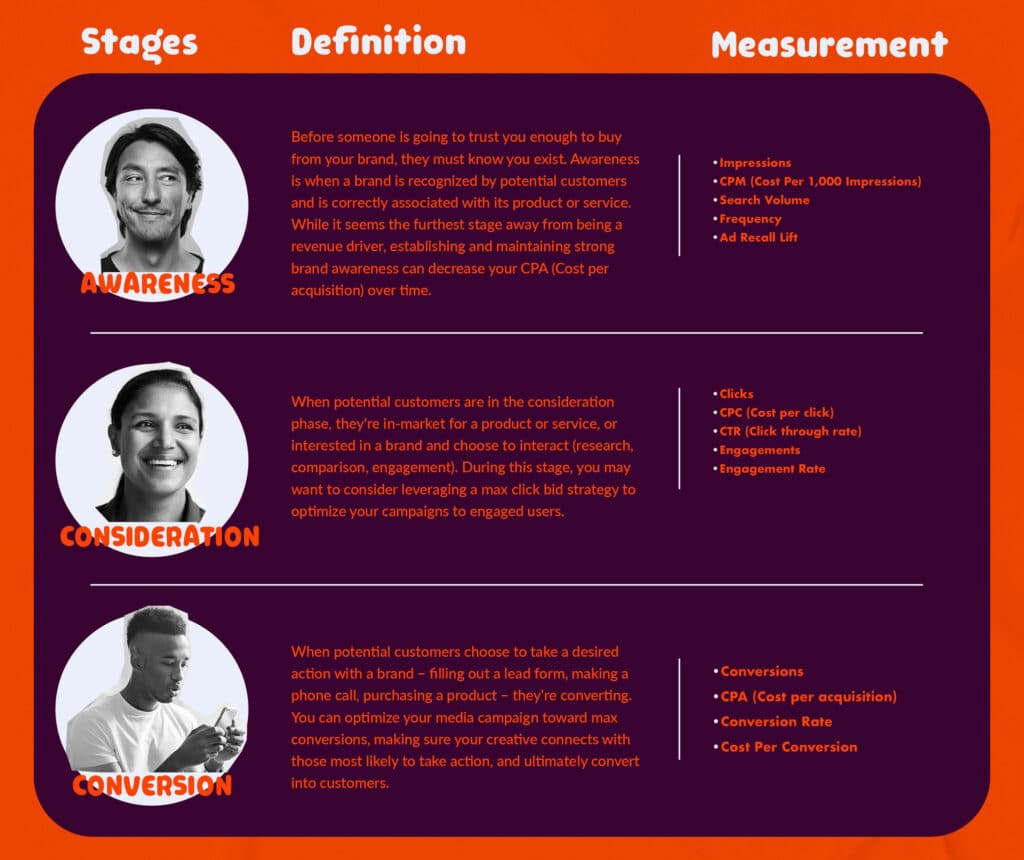The ROI of Being Found

You’ve studied your audience’s search intent, planned your keywords, strategized with your media and SEO teams, optimized your site’s technical framework, and consistently created relevant content and broadcast it into the ether – and now you’re waiting for results.
Digital marketing has the unique advantage of being easily tracked in real time. But the results on revenue aren’t always instant. Tactics like SEO and SEM can take 4-6+ months to make a significant difference in driving qualified traffic to your website. And as you move up the SERP and fight to stay there, it can be difficult to calculate what returns you’re getting back from your hard-earned investment…so then, how should you be measuring the value of your marketing tactics?
But when it comes to finding the true number of sales attributed to marketing efforts across a multi-touchpoint consumer journey, the waters get a little murkier. That’s why when we think “return,” our definition expands to include other important KPIs, embracing a full-funnel approach to how we measure success. Here’s how we counsel our clients to find their ROI on campaigns:
1. Start each campaign by picking one objective as your primary goal: awareness, consideration, conversion.
Your marketing strategy should still support the other two remaining objectives (necessary to keep your marketing funnel full) but the tactics you use and invest in should support a primary goal you’re looking to accomplish through your campaign.
2. Track, track, and track some more.
With the right data you can get a clear view of what’s happening and optimize your advertising strategy based on your primary objective. Following changes in key performance indicators (KPIs) can help you forecast how successful will be for the duration of campaign and give you a chance to make changes along the way you’ve noticed poor performance.

3. Be prepared to pivot.
If you’re showing success in a secondary objective and your primary objective isn’t getting much traction – optimize to what’s working. You may learn throughout your campaign, for example, that it’s time to switch your media strategy from conversion to consideration, while you and your team revisit your ad creative and landing pages to see if it’s your content that’s not connecting. How long should you wait before making a change? The time it takes to delineate what’s a trend and what’s an anomaly really depends on your objective and the length of your lead cycle.
4. Utilize a marketing attribution model.
Utilize a marketing attribution model that applies value to specific actions taken within your customer decision journey to see which marketing activities are helping to drive your bottom line. Taking the dollars associated with a sale or lifetime value of a customer and associating value to each step along your decision journey can help you fine tune your return per strategy or campaign. Models that assign equal or weighted credit to various parts of your funnel will give you a clearer picture of the multiple touchpoints that went into converting a lead, rather than relying on last-touch attribution only which only gives credit to the last action before conversion.
5. Ask your agency to be transparent.
Your agency should be transparent in sharing how your dollars are being utilized so you can calculate your investment per tactic, campaign, or program – and ask how often they plan to share results with you. This may seem like common sense, especially if you already work with an agency within Leap Group. While we painstakingly estimate, scope, track, and report how each client’s media dollars are (or are not) working for them, that’s not always the case with every agency. Your best chance at maximizing ROI is to monitor the performance of your strategies often and be prepared to make changes based on trends you notice over time. If you’re being left in the dark, you might miss an important opportunity to act, leaving money on the table.